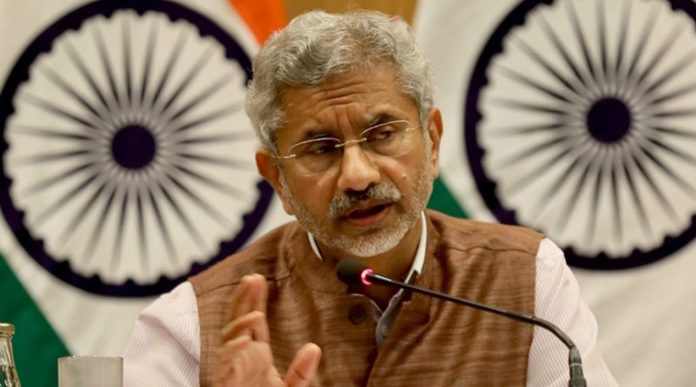New Delhi (NVI): The events in Eastern Ladakh that took place last year have so profoundly disturbed the relationship between India and China, that it is at crossroads today, while the aggressive posturing at the Line of Actual Control (LAC) by the Chinese side showed their willingness to breach peace and tranquility, External Affairs Minister S Jaishankar has said.
“For all the differences and disagreements that we may have had on the boundary, the central fact was that border areas still remained fundamentally peaceful. The last loss of life before 2020 was, in fact, as far back as 1975. That is why the events in Eastern Ladakh last year have so profoundly disturbed the relationship. Because they not only signalled a disregard for commitments about minimizing troop levels, but also showed a willingness to breach peace and tranquillity,” EAM Jaishankar said in his keynote address at the 13th All India Conference of China Studies.
Jaishankar’s remarks came as India and China are locked in a bitter stand-off over border row that escalated with violence witnessed along LAC from the Chinese side.
The EAM said that far from mitigating differences, the events of 2020 have “actually put our relationship under exceptional stress.”
He said that any expectation that the situation at LAC “can be brushed aside, and that life can carry on undisturbed despite the situation at the border,” is simply not realistic.
“After the 1962 conflict, we exchanged Ambassadors only in 1976. The first Prime Ministerial visit to China after 1954 actually happened only in 1988. And indeed, the re-building of our ties was actually a very painstaking and arduous endeavour,” Jaishankar said.
In his address, Jaishankar said that it has often been said that the ability of India and China to work together will determine the Asian century.
The EAM further outlined eight principles to repair ties with China. “Experience of the past taught us the importance of stabilizing our relationship even while adjusting to changes. From that, we can seek proper guidance that will be to the benefit of both nations. These can be summed up by eight broad propositions,” he said.
First and foremost, agreements already reached must be adhered to in their entirety, both in letter and spirit, he said. Second, where the handling of the border areas are concerned, the LAC must be strictly observed and respected; any attempt to unilaterally change the status quo is completely unacceptable, he added.
On third principle, Jaishnakar said peace and tranquillity in the border areas is the basis for development of relations in other domains. “If they are disturbed, so inevitably will the rest of the relationship. This is quite apart from the issue of progress in the boundary negotiations.”
“Fourth, while both nations are committed to a multi-polar world, there should be a recognition that a multi-polar Asia is one of its essential constituents. Fifth, obviously each state will have its own interests, concerns and priorities; but sensitivity to them cannot be one-sided. At the end of the day, relationships between major states are reciprocal in nature. Sixth, as rising powers, each will have their own set of aspirations and their pursuit too cannot be ignored. Seventh, there will always be divergences and differences but their management is essential to our ties. And eighth, civilizational states like India and China must always take the long view,” he said while summing up the eight principles.
“At this time, it is equally important to recognize that their difficulties in doing so may well undermine it. The India-China relationship is today truly at a crossroads. Choices that are made will have profound repercussions, not just for the two nations but for the entire world. Respecting the three mutuals and observing those eight principles that I spoke about will surely help us make the right decisions,” he said.
-ARK








